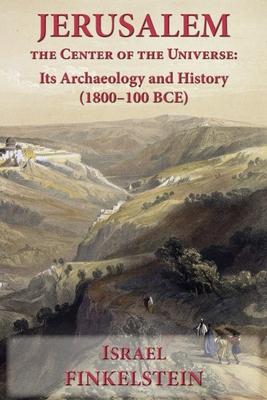Jerusalem is the center of the universe, the hub of the three great monotheistic religions, yet how did a city located on the desert fringe, in the semi-arid southern highlands of Israel with little tillable land achieve such dominance? To provide answers to this enduring riddle, Israel Finkelstein has collected twenty-four of his best articles and essays covering the Middle Bronze Age to the late Hellenistic period. With critical and well-informed care, he analyzes archaeological evidence that often stands in tension with the biblical text. Topics of particular interest include the archaeology of the tenth century BCE; Saul, David, and Solomon in the Bible and archaeology; the first expansion of the city in the ninth century; its full growth in the late eighth to seventh centuries; Jerusalem and Judah under the Assyrian Empire; the days of King Josiah; and transormations in the Persian-Hellenistic era.

Jerusalem the Center of the Universe: Its Archaeology and History (1800-100 BCE)
Jerusalem is the center of the universe, the hub of the three great monotheistic religions, yet how did a city located on the desert fringe, in the semi-arid southern highlands of Israel with little tillable land achieve such dominance? To provide answers to this enduring riddle, Israel Finkelstein has collected twenty-four of his best articles and essays covering the Middle Bronze Age to the late Hellenistic period. With critical and well-informed care, he analyzes archaeological evidence that often stands in tension with the biblical text. Topics of particular interest include the archaeology of the tenth century BCE; Saul, David, and Solomon in the Bible and archaeology; the first expansion of the city in the ninth century; its full growth in the late eighth to seventh centuries; Jerusalem and Judah under the Assyrian Empire; the days of King Josiah; and transormations in the Persian-Hellenistic era.